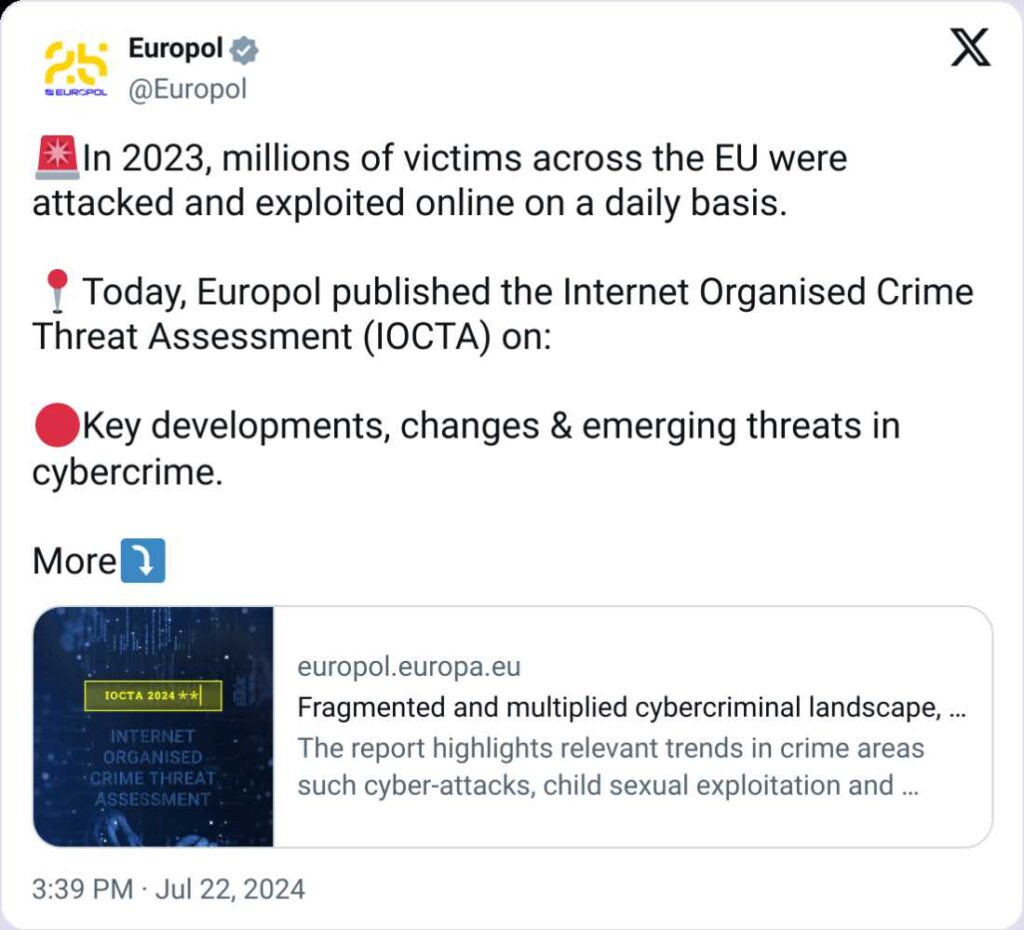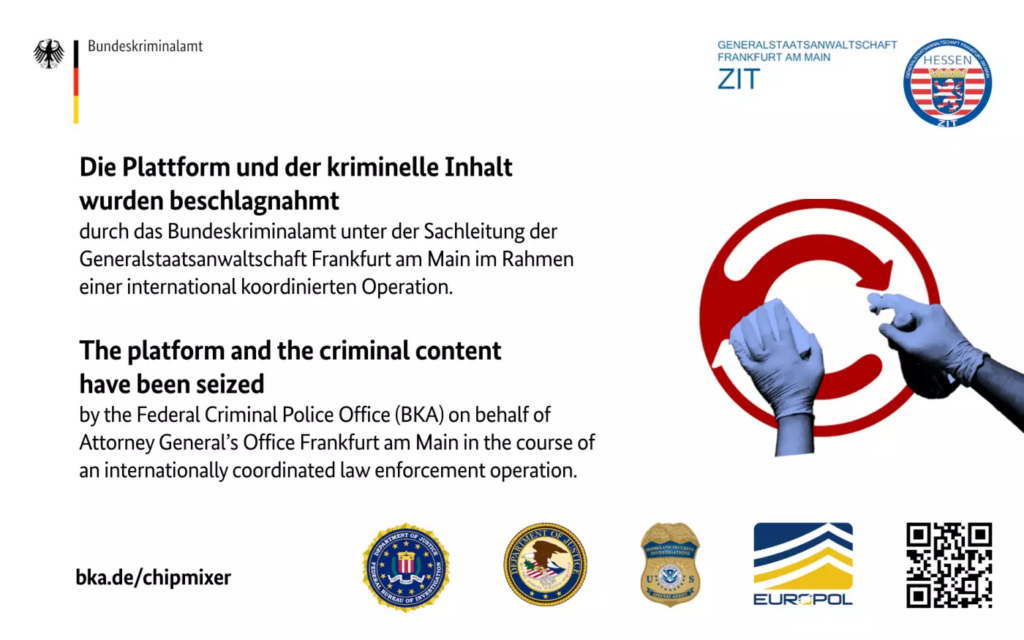Europol’s 2024 report emphasizes using AI tools that allow non-technical individuals to commit sophisticated cybercrimes.
According to its annual assessment of the most recent cyber threats in the European Union, the European Union Agency for Law Enforcement Cooperation (Europol) anticipates an increase in the number of cybercrimes facilitated by artificial intelligence.
According to the law enforcement agency’s “Internet Organised Crime Threat Assessment (IOCTA) 2024” report, AI tools facilitate the coordination of sophisticated online crimes by non-technical individuals.

Artificial intelligence provides a more accessible entry point for criminals.
Bad actors worldwide employ AI-generated deep fakes and fraudulent advertisements to target potential victims. The IOCTA 2024 report indicates that the emergence of these tools is actively reducing the entrance barrier to cybercrimes.
Consequently, the law enforcement agency recognized the necessity of equipping itself with the necessary tools to safeguard the EU financial system and combat technology exploitation. Catherine De Bolle, the executive director of Europol, stated:
“Law enforcement agencies are expected to build a robust capacity to counter the growing threats stemming from cybercriminals leveraging AI, both in terms of human resources and technical skills.”
Future developments in deepfake technology may have far-reaching consequences for victims beyond minor offenses. Europol foresees the potential for sexual extortion cases, in which perpetrators may generate fraudulent content to intimidate victims, and recommends:
“This trend would require law enforcement agencies to have more suitable and sophisticated tools to identify which (parts of) audio, image and video content are deepfakes.”
Apprehensions regarding cryptocurrency
Europol’s IOCTA report also identified specific components of the cryptocurrency ecosystem that could contribute to the increase in cybercrimes, including Bitcoin exchange-traded funds (ETFs) and non-fungible tokens (NFTs).
Europol stated that adopting Bitcoin ETFs could benefit criminals even though they have not yet discovered a viable method of conducting large-scale fraud with NFTs.
The proliferation of ETFs associated with cryptocurrencies presents a potential opportunity for scammers to exploit the fact that individuals who lack extensive experience in the field will be exposed to them more frequently.
“Companies issuing cryptocurrency ETFs will also have to hold large reserves in cryptocurrency, which might make them valuable targets for fraudsters.”
Europol recently confiscated crypto assets valued at $46 million from ChipMixer, a cryptocurrency aggregator, for its purported involvement in money laundering activities.

On November 25, 2022, blockchain investigator ZachXBT previously claimed that the hacker(s) of the defunct cryptocurrency exchange FTX laundered 360 BTC ($5.9 million) using ChipMixer following a $372 million exploit.
The total assets seized are 1,909.4 BTC in 55 transactions, equivalent to 44.2 million euros ($46 million).



